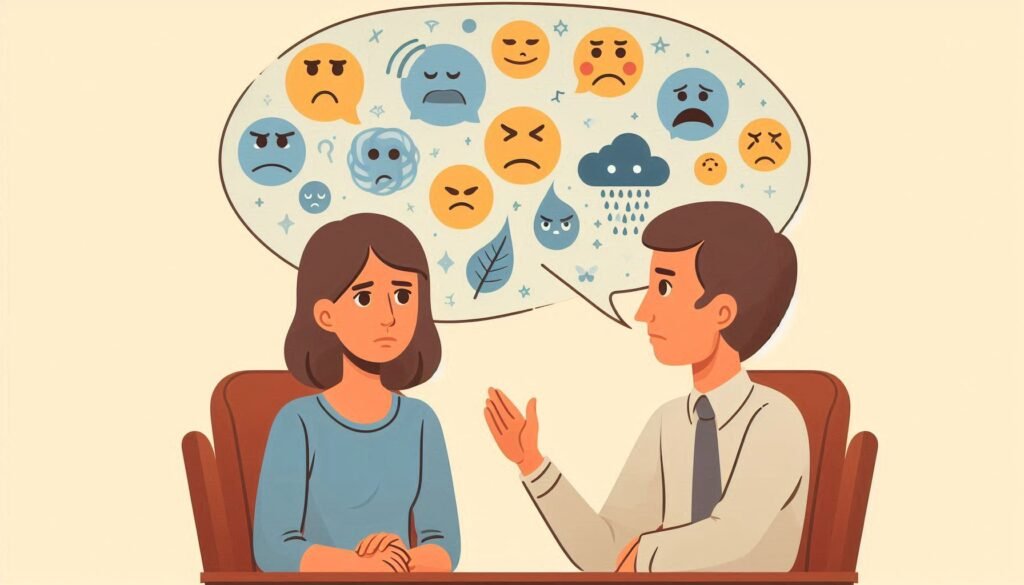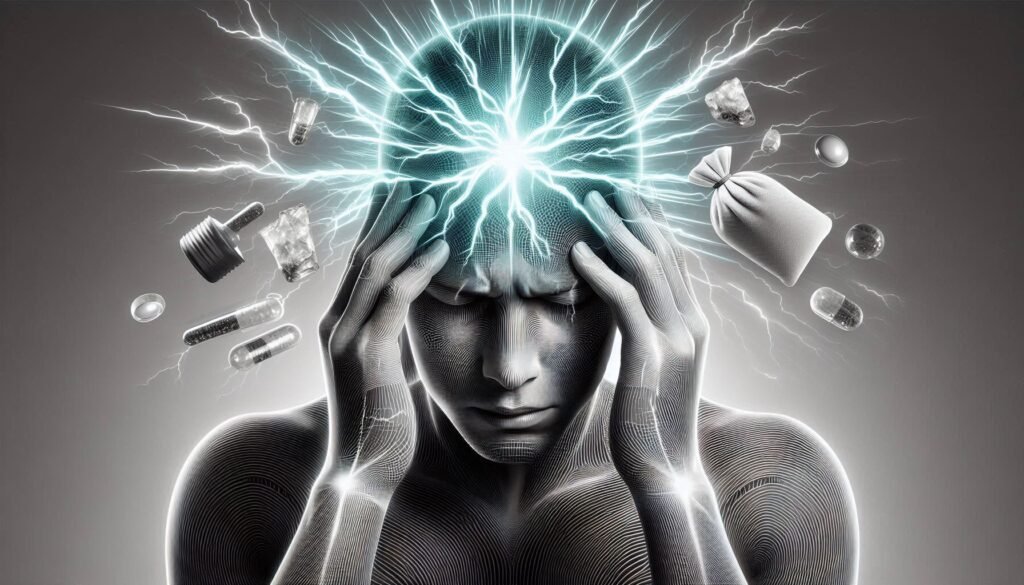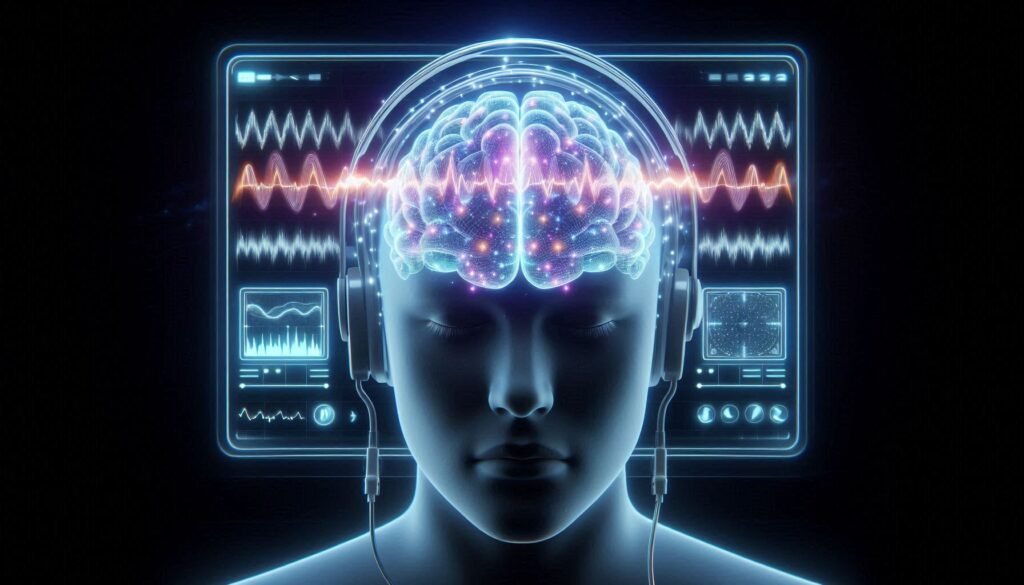Concussions can wreak havoc on both the body and the mind. While most people are familiar with the physical symptoms, such as headaches or dizziness, fewer understand the emotional and behavioral changes that often follow. These psychological impacts can significantly affect an individual’s quality of life.
Psychotherapy for emotional and behavioral changes post-concussion offers a path toward recovery that addresses not only cognitive function but also emotional well-being. As we delve into various therapeutic approaches available for concussion patients, it becomes clear how essential mental health support is in this journey. Understanding these therapies can empower individuals to reclaim their lives after experiencing a concussion. Let’s explore how psychotherapy plays a crucial role in healing both mind and spirit following such injuries.

Understanding the Psychological Impact of Concussions
Concussions can lead to a range of psychological effects that are often overlooked. Many individuals experience anxiety, depression, and mood swings after sustaining a concussion. These emotional changes can be as debilitating as the physical symptoms, impacting daily functioning.
The brain’s chemistry alters following an injury, which may contribute to these emotional disturbances. This shift can make it difficult for individuals to process their feelings or engage in social situations they once enjoyed. The result is often isolation and frustration.
Cognitive difficulties such as memory issues and trouble concentrating frequently accompany these emotional challenges. As cognitive load increases, emotions can become overwhelming, leading to further distress.
Understanding the interplay between physical injuries and mental health is essential for comprehensive recovery. Addressing these psychological impacts early on helps set the stage for effective therapeutic interventions that promote overall well-being during post-concussion recovery.
Cognitive Behavioral Therapy (CBT) for Post-Concussion Syndrome
Cognitive Behavioral Therapy (CBT) has emerged as a valuable tool for individuals experiencing post-concussion syndrome. This therapeutic approach focuses on reshaping negative thought patterns that often accompany emotional and behavioral changes after a concussion. By identifying these harmful beliefs, patients can learn to challenge and replace them with more constructive thoughts.
During CBT sessions, therapists help patients develop coping strategies tailored to their specific experiences. These techniques empower individuals to manage anxiety, depression, or irritability that may stem from their injury. As they practice these skills in real-life situations, patients gain confidence in navigating the challenges of recovery.
Additionally, CBT encourages setting realistic goals for rehabilitation. This structured approach allows those affected by concussions to track progress and celebrate small victories along the way. Building this sense of achievement can significantly enhance motivation during recovery.
Integrating CBT into treatment plans provides a holistic method for addressing psychological aspects of post-concussion syndrome while fostering resilience and better emotional health.
Acceptance and Commitment Therapy (ACT) in Concussion Recovery
Acceptance and Commitment Therapy (ACT) offers a unique approach for those recovering from concussions. Rather than focusing solely on symptom reduction, ACT encourages individuals to accept their thoughts and feelings while committing to values-driven actions. This method can reduce the anxiety often associated with post-concussion symptoms.
In practice, ACT teaches patients how to identify unhelpful thought patterns that may hinder recovery. By recognizing these thoughts without judgment, individuals learn not to let them dictate their behavior or emotional state. This shift fosters resilience in the face of ongoing challenges.
Moreover, ACT emphasizes the importance of living in alignment with personal values during recovery. Patients are guided to explore what matters most to them—whether it’s returning to work or engaging in social activities—and create actionable steps toward achieving those goals.
With its focus on acceptance and commitment rather than avoidance, ACT provides tools that enhance psychological flexibility. As patients become more adaptable, they may find themselves better equipped for life after concussion.
Mindfulness-Based Stress Reduction for Symptom Management
Mindfulness-Based Stress Reduction (MBSR) is an evidence-based program designed to alleviate stress and improve emotional well-being. For individuals grappling with post-concussion symptoms, MBSR offers practical techniques for managing anxiety, depression, and pain. It emphasizes being present in the moment without judgment.
Practicing mindfulness can involve meditation, yoga, or simple breathing exercises. These practices help patients become more aware of their thoughts and feelings rather than becoming overwhelmed by them. This awareness fosters better emotional regulation over time.
Research indicates that MBSR may lead to significant improvements in quality of life for those recovering from concussions. Participants often report decreased levels of stress and enhanced coping skills as they learn to navigate their new reality.
Additionally, engaging in group sessions can provide a sense of community support. Sharing experiences with others facing similar challenges creates connection while reinforcing the strategies learned during practice.
Family Therapy: Supporting the Patient’s Social Environment
Family therapy plays a crucial role in the recovery process for individuals experiencing emotional and behavioral changes post-concussion. It provides a safe space for family members to express their concerns, frustrations, and emotions regarding their loved one’s condition. This open dialogue fosters understanding among family members about the impacts of concussions.
Families often experience stress when supporting someone with post-concussion syndrome. Family therapy helps in addressing these dynamics by enhancing communication skills and promoting empathy within the household. When families understand what the patient is going through, they can offer better support.
Engaging family members in treatment encourages cooperation during recovery efforts. Families can become advocates, assisting patients in managing symptoms while reinforcing positive coping strategies learned during individual therapy sessions.
Moreover, involving the entire social environment aids in reducing feelings of isolation that many concussion survivors face. The collaborative approach strengthens relationships while promoting healing as everyone works toward common goals together.
Addressing Post-Traumatic Stress Symptoms Following Concussion
Post-traumatic stress symptoms can emerge after a concussion, complicating the recovery process. Patients may experience flashbacks, nightmares, and heightened anxiety linked to the traumatic event that caused their injury. These reactions can be distressing and may hinder emotional healing.
Therapy plays a crucial role in addressing these symptoms. Psychotherapeutic techniques like exposure therapy help individuals confront their fears gradually in a controlled environment. This method desensitizes them to trauma-related cues over time, promoting resilience.
Cognitive restructuring is another effective approach. It enables patients to identify and challenge negative thought patterns associated with the concussion trauma. By reshaping these thoughts, individuals can reduce feelings of helplessness and regain control over their emotions.
Integrating mindfulness practices into treatment also aids in managing post-traumatic stress symptoms. Techniques such as deep breathing or meditation foster present-moment awareness, helping patients detach from distressful memories while cultivating a sense of calm during difficult moments.
Emotion Regulation Techniques for Mood Instability
Emotion regulation techniques are vital for individuals experiencing mood instability after a concussion. These strategies help patients manage intense emotions and foster resilience in the face of challenges. Learning to identify triggers can be the first step toward effective emotional management.
One useful technique is deep breathing exercises, which promote relaxation and reduce anxiety. Focusing on slow, intentional breaths helps ground individuals during moments of distress. Visual imagery can also serve as a powerful tool; envisioning calming scenes allows patients to transport themselves mentally away from overwhelming feelings.
Journaling is another beneficial practice that encourages self-reflection. Writing down thoughts and feelings creates an outlet for expression and aids in recognizing patterns related to mood changes. This awareness empowers individuals by providing insights into their emotional states.
Additionally, engaging in physical activities like yoga or stretching not only benefits physical health but also enhances mental well-being. Incorporating these emotion regulation techniques into daily routines can significantly improve quality of life following a concussion.
Group Therapy: Benefits of Shared Experiences in Recovery
Group therapy can be a powerful tool for individuals recovering from concussions. It creates an environment where participants share their experiences and feelings related to emotional and behavioral changes post-injury. This shared understanding cultivates a sense of belonging, reducing feelings of isolation that often accompany recovery.
Participants benefit from hearing others’ stories, which can help normalize their own experiences. They realize they are not alone in facing challenges like anxiety, depression, or mood swings after a concussion. These shared narratives foster empathy and support among group members.
Moreover, group therapy encourages open discussions about coping strategies that have worked or failed for different individuals. Learning from one another’s successes can provide new insights into managing symptoms effectively.
The therapeutic alliance formed within the group also enhances motivation to engage actively in recovery processes. As individuals witness each other’s progress, it inspires hope and resilience—key components on the journey towards healing after a concussion.
Psychoeducation: Empowering Patients in Their Recovery Journey
Psychoeducation plays a vital role in the recovery process for individuals experiencing emotional and behavioral changes post-concussion. By providing patients with information about their condition, it fosters a deeper understanding of what they are going through. This knowledge can reduce anxiety and empower them to take an active role in their healing journey.
Understanding symptoms associated with concussions helps demystify experiences that may feel overwhelming or frightening. Educating patients about potential psychological impacts equips them to recognize when they need additional support. It also promotes self-advocacy within medical or therapeutic settings.
Moreover, psychoeducation encourages open communication between patients, families, and healthcare providers. This collaborative approach ensures that everyone involved is on the same page regarding treatment options and coping strategies.
Psychoeducation emphasizes the importance of resilience and adaptive skills. With better insights into their conditions, patients are more likely to engage positively in therapies aimed at improving emotional well-being and overall health during recovery.
Integrating Psychotherapy with Other Concussion Treatment Modalities
Integrating psychotherapy with other concussion treatment modalities is crucial for a holistic approach to recovery. While physical rehabilitation often focuses on restoring cognitive and motor functions, addressing emotional and behavioral changes through therapy enhances overall wellbeing. Collaboration between healthcare providers ensures that patients receive comprehensive care tailored to their unique needs.
Psychotherapy can complement traditional medical treatments by providing coping strategies and emotional support. This integration can lead to better outcomes, as patients learn how to manage symptoms while reinforcing skills developed in therapy sessions. For instance, combining Cognitive Behavioral Therapy (CBT) with physical therapies fosters resilience against setbacks.
Additionally, involving family members in the process creates a supportive environment conducive to healing. Family dynamics play a significant role in recovery; thus, psychoeducation helps loved ones understand the challenges faced by individuals post-concussion.
Effective management of emotional and behavioral changes requires an interdisciplinary approach that prioritizes mental health alongside physical recovery. By embracing this comprehensive strategy, individuals can navigate their journey towards regaining control over their lives after experiencing a concussion.


